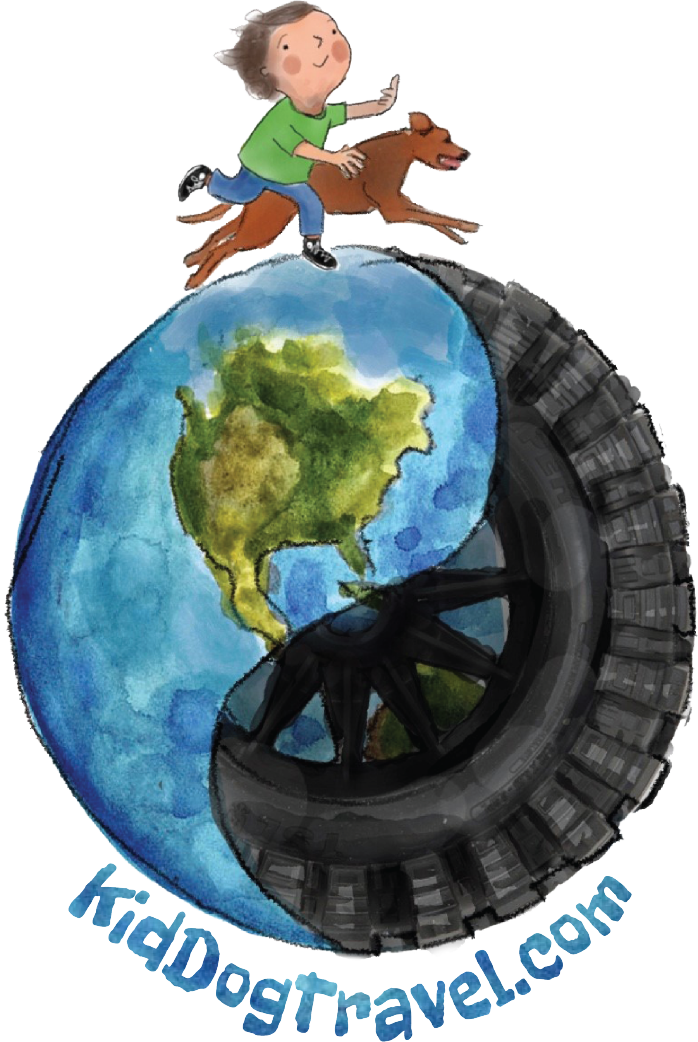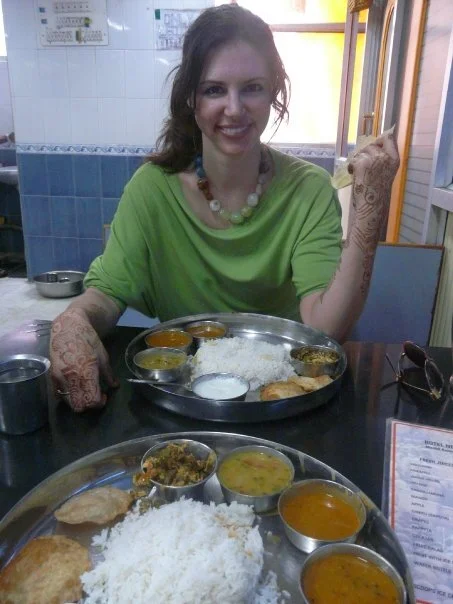How Experience Abroad Can Serve You in Times of Ambiguity….Like a Global Pandemic
/We’re all navigating through a lot of ambiguity lately because of this Coronavirus pandemic.
I think people who’ve spent a lot of time abroad have an advantage in this gray space, as they’re used to navigating through unfamiliar situations. They know they don’t (and won’t) understand everything going on around them, and learn to adapt and manage well enough with incomplete information.
I see this as an important life skill and one we’re intentionally cultivating with our five-year old son, Wolf. Considering that we just moved to Argentina a few months ago, I expect we’ll all have plenty of opportunity.
Meanwhile, it’s got me thinking about some of my own weird and challenging experiences abroad. They’ve all contributed to my fairly anxiety-free response to the virus and lockdown we’re currently under…
Japan, 2001
I went to Tokyo to teach English for a year. I lived in shared housing with young Japanese workers and commuted into work every day.
One day when the subway was particularly packed, I saw an old lady standing and offered her my seat. She shook her head no. Confused, I offered again, half-standing and pointing at the seat I’d just vacated.
Again, she shook her head and said something back to me in Japanese. I shrugged and sat back down, only to have her glare at me. A minute or two later, a young Japanese guy offered her his seat and she took it.
When I went back to the house I asked one of my Japanese friends what I’d done wrong. She explained that traditionally, older Japanese expect to be offered something THREE times. They say no the first two times, and then (faux-grudgingly) accept when you insist the third time.
Obviously not knowing this, I’d stopped trying a smidge too soon.
India, 2004
I spent a year in southern India teaching “accent reduction” and North American customer service at a call center. The guest house I lived at had a maid who liked me, even though she didn’t speak a word of English beyond “hello”. One day, she invited me to come to her home for a Saturday afternoon lunch.
I accepted, not knowing she lived a two-hour bus ride across the city. Someone told me that Coca Cola would be appreciated as a treat, so I brought a 2-liter bottle and some baked treats as a small gift for her family.
During the long bus ride, not able to speak to my companion, I gradually watched as the neighborhoods became increasingly decrepit. Eventually, we got off the bus and walked into the alley where she lived. She waved and shouted at all her neighbors as we paraded down the street together - our height difference alone making us an odd-looking pair, with her around 4’, and me close to 5’10.
When we reached her house, the entire family was waiting at the door. The table was set up…for one. She showed off the soda and treats I’d brought and then poured me a now-hot glass of Coke. It hadn’t occurred to me that they wouldn’t have ice.
Her family formed a standing circle around me as she HAND FED me the rice and veggies they had made. Yes, literally. She put the food from her hands directly into my mouth, and it was as awkward as it sounds.
Nobody else ate or drank anything, and when she finished feeding me she gave me one of the baked treats I’d brought for dessert. After that, she escorted me two hours across the city back to my house.
It was a long day’s lunch, and a moving insight into what it can be like to be an honored guest in an Indian home. It was humbling to realize she had traveled eight hours by bus on her day off to receive me as a guest in her home.
Oman, 2005
I lived and worked in Dubai for five years as a management trainer at an aluminum smelter.
While there, I took a weekend trip to Oman, which is much more conservative than Dubai. I hadn’t been in the region long at this point. To demonstrate cultural respect I thought I should wear an abaya (the long, loose black robe) and cover my hair.
At Carrefour, which is kind of like a French Walmart, I picked out an inexpensive abaya I thought had a little flair. It was black, and embroidered with orange sequins arranged in large circular patterns. I bought it, and didn’t even think about checking the size. It looked as one-size-fits-all as anything could possible be.
Well, it wasn’t. The abaya wasn’t designed for someone as tall as me, and stopped five or six inches above my ankles. I decided to wear it anyway, and moved on to figuring out how to tie the head scarf. I had no idea, and since it kept falling back when I walked I ended up tying it in a knot under my chin.
I actually left the house thinking people might mistake me for a local. Instead, the Omanis I passed that day literally pointed, stared, and even giggled at me. I had no idea why, still convinced I looked exactly like the Omani women I saw around me.
Much later on, I told some female Emirati colleagues about the experience. They explained what had gone wrong, and that by the way they wouldn’t have been caught dead in the abaya I picked out. (They wouldn’t drive out to lunch in my Hyundai either, but that’s a different story!)
Argentina, Present Day
That brings me back to living in Argentina during the Coronavirus outbreak. It’s early days for us here and at the moment we’re not interacting with anyone because we’re all locked down.
But experiencing awkward moments is inevitable coming into any new culture and I’m sure we’ll have our share. We won’t let that stop us, though. We’ll accept the social invitations that come our way, offer our own, and beg forgiveness if we inadvertently show up for a party an hour before everyone else.
My hope is that with these early experiences, uncomfortable as they can be, Wolf will grow into an adult both capable and comfortable maneuvering through undefined situations. I’m sure these traits will serve him well whatever path he ends up taking in his life, as they’ve served me.
Meanwhile, we’ll deal with this pandemic as we usually do in the face of something ambiguous and unfamiliar. We’ll monitor events, assess our situation as it evolves, and then make our best decisions with the information we have.
And maybe most importantly, we’ll work under the assumption that with a little creativity and resourcefulness we can handle whatever comes our way.




